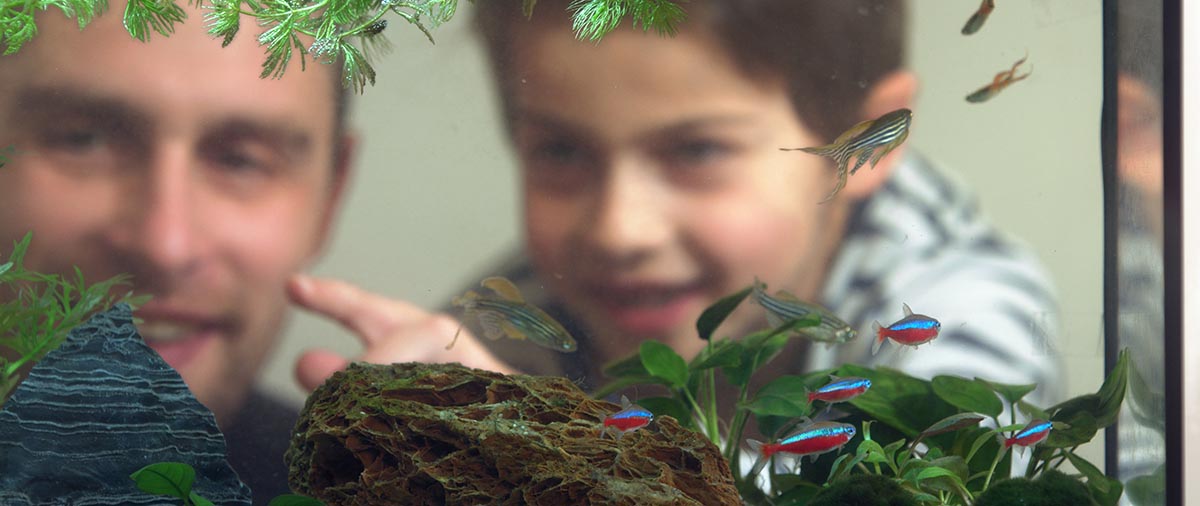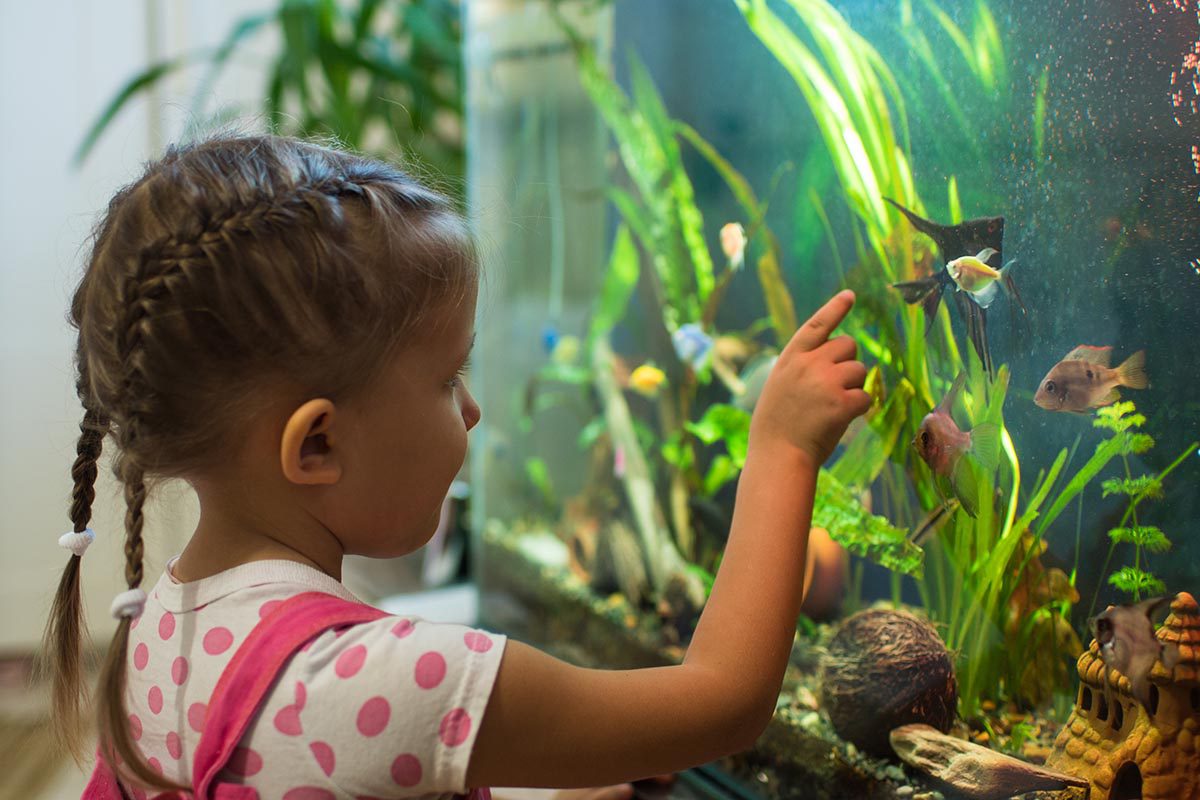The time comes when every child wants a pet of their own. After all, children love animals. But not all animals are suitable for all families. For example, you might rent an apartment where you are prohibited from having popular pets like cats or dogs, or you may have a family member who is allergic to animal hair. Fortunately though, there are other animals that can fulfil your child’s desire for a pet. In fact, fish are becoming an increasingly popular choice as a pet. They are among the oldest vertebrate animals in the world and offer lots of advantages.
The advantages of fish
Fish make ideal pets for children as they offer a way for them to discover the underwater world and an entire ecosystem. The fish and their behaviour under water can be optimally observed in an aquarium at home. For instance, it is great fun to watch the fish being fed and see how excited they are to eat. Children can also learn a great deal about the various fish and their needs, such as the right water parameters and their importance.
When setting up an aquarium both you and your child can give free reign to your imagination. There are all sorts of options for adding your own special touches when designing an underwater world in an aquarium. For example, you can choose the colour of the gravel, different aquatic plants and whichever stones or sculptures take your fancy. A sunken pirate ship can make aquariums an exciting place for both your child and the fish.
Researchers from the National Marine Aquarium in Plymouth have also shown that looking into an aquarium and watching fish can reduce stress, promote both well-being and improve concentration skills. Aquariums can particularly help extremely active children to be somewhat calmer. In addition to the above, fish are far easier to care for than many other pets, making them ideal for beginners. Of course, it is important to keep the fish in a species-appropriate manner to give them a long and happy life. Your child therefore learns about consideration and to develop a sense of responsibility at an early age.
Choosing the right aquarium
Before purchasing any fish, you should first find out about their precise needs. It generally helps to obtain a basic understanding of fishkeeping in advance so you know what to look for in an aquarium. This is because the aquarium, plants and fish must all go well together. It is therefore important to consider which fish you would like to keep and select an aquarium of an appropriate size. Starter sets can be used to make things easier for newcomers to the world of fishkeeping. These usually include an aquarium together with a pump, filter materials and some food.
You
should ideally try to replicate the natural habitat of the fish by setting up
the aquarium with suitable substrate and plants. Plants are particularly
important when keeping fish as they supply oxygen and, to a certain extent, can
remove any toxic substances from the water. As mentioned above, you can then
give free reign to your imagination with regard to how you decorate your
aquarium with stones, roots or sculptures.

Choose other species carefully
Fish come in all sorts of different shapes and colours, making them particularly fascinating. When adding fish to an aquarium, you must naturally also ensure that all of the species in it are compatible. Not all species of fish get on with each other. When choosing fish, you should therefore ideally go for ones that live in different tank regions. This means that they will largely keep out of each other’s way and can live together peacefully. Otherwise the fish may stress each other out. When mixing fish, you should therefore not only check that the species get on with each other but that they also have the same requirements in terms of habitat. Species like goldfish, guppies, barbs, mollies and rainbow fish are particularly ideal for beginners.
Even fish need care
As mentioned above, fish are much easier to care for than other pets. Despite this, they still require a certain amount of care and attention once you have set up the aquarium and added the fish. For example, as with all pets, you need to feed them daily. It is also necessary to regularly check the water parameters, such as the pH-value, to quickly detect any deterioration in water quality. As fish are in direct contact with the water via their gills, good water quality is essential. You should therefore perform regular partial water changes to provide a suitable level of hygiene. Food residues and any dead plant matter should also be removed from the water.
By following these simple measures, you will enable your finned friends to enjoy a long and happy life in your home.

